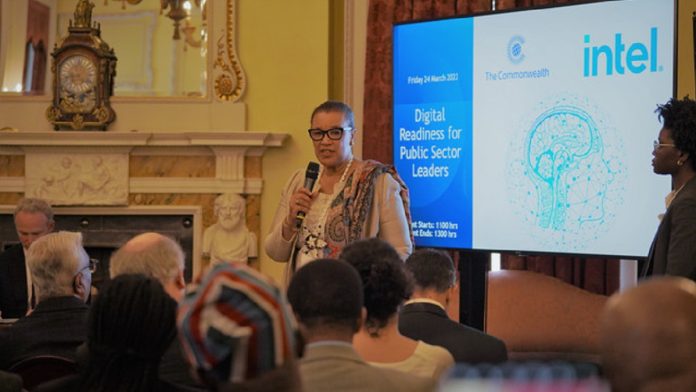Commonwealth, Intel Launch AI Learning Platform for Public Sector Officials
The Commonwealth Secretariat and Intel have jointly launched a digital learning platform to enable public sector officials in 56 countries to understand and harness emerging technologies to achieve development goals.
This online digital training course aims to demystify artificial intelligence (AI) among senior officials across the Commonwealth and raise awareness of its potential applications in various sectors, in view of the current needs and digital readiness of respective countries.
Recognising the ever-increasing speed and scale of digitalisation in everyday life, business and government, the ‘Digital Readiness for Public Sector Leaders’ programme seek to support countries in unlocking its benefits and closing the global AI divide.
The self-paced course contains use-case examples, international best practices and frameworks that will also allow learners to develop strategies, scalable solutions and action plans for digital transformation in their communities.
It covers topics such as digital governance, technology, infrastructure and inclusivity.
Unveiling the platform today at the Commonwealth Headquarters in London, the Commonwealth Secretary-General, the Rt Hon Patricia Scotland, KC, said: “This course is a new and important milestone achievement, which the Commonwealth has developed for our member countries in close collaboration with Intel.
“It provides a unique opportunity for public sector workers and leaders in member states to be trained in the fundamentals of Artificial Intelligence and Machine Learning. The course will lay the foundations for trust in these technologies, and confidence in our capability to use them effectively and responsibly.”
Speaking at the event via video stream, the Vice President of Intel, Ms. Sarah Kemp, stated: “Digitization drives benefits for governments and their citizens, including GDP growth, job creation, social inclusion along with improvement of services, as well as governance with increased participation, more transparency and efficiency.
“For countries to remain competitive in the global economy, it is important for them to invest in expanding digital readiness for all and upskilling current and future workforces for an AI-ready world.”
The programme featured a panel discussion by experts and officials, including the High Commissioner of Rwanda to the United Kingdom H.E Johnston Busingye, the Deputy Permanent Secretary of the Ministry of Trade, Industry, Regional Integration and Employment of The Gambia Mr Abdoulie Jammeh, the Director of Enterprise and Public Sector for Europe, the Middle East, and Africa at the Intel Corporation Mr Steve Shakespeare, and the CEO of Oxford Insights Mr Richard Stirling.
The High Commissioner of Rwanda highlighted the practical uses of AI in developing countries:
“Artificial Intelligence and machine learning can propel smart agriculture, environmental monitoring and protection, better coastal management, a smart fishing industry, an enhanced tourism industry, better lagoon monitoring, and smart use and generation of renewable energy, among many other sectors which have implications today and even more so tomorrow.
“Digital readiness is shaping the present and the future, and Commonwealth countries must not be left behind.”
In a special presentation, the Director General of the National Centre for Good Governance of India, Mr Bharat Lal, shared India’s success story of digitalisation and the role of AI in good governance, highlighting cases in the agriculture sector and COVID-19 management in India.
Discussions also focused on the rise of the digital economy in creating new economic pathways and job opportunities across the Commonwealth.
The digital economy is expected to play a key role in achieving the target of US$2 million worth of trade amongst member countries by 2030, as reflected in the Commonwealth Connectivity Agenda.
At the same time, participants underlined the widening gap between those who have access to digital connectivity and AI technology and those who do not, with those living in developing nations and small states more likely to be affected by a lack of digital readiness.
The event also announced the Commonwealth Secretariat’s vision to develop a platform to assist Commonwealth small states to build domestic transformative technologies and AI capacity to strengthen their economic resilience, mitigate climate change and upskill their workforces.


